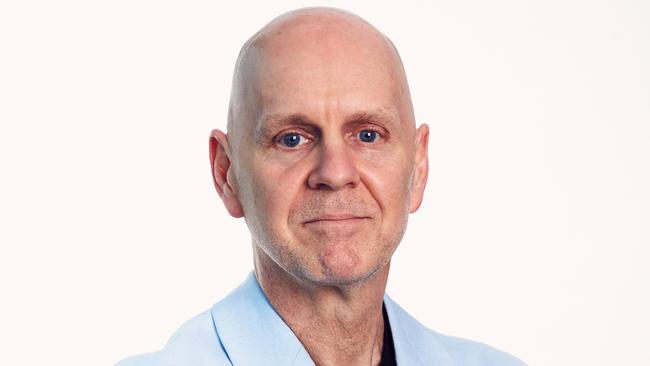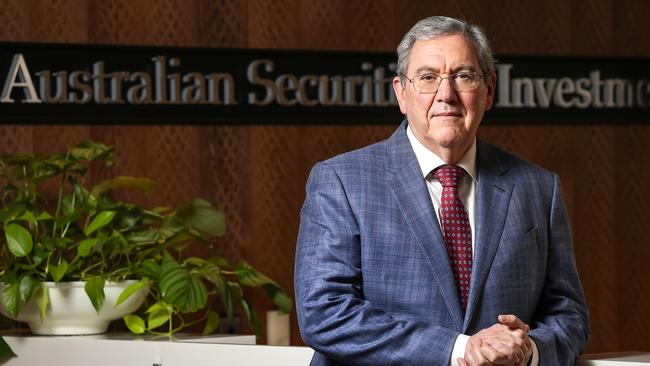FinClear says only real powers for ASX advisory group or divestment of clearing monopoly will benefit
Trading technology company FinClear wants ‘real powers’ for the advisory group overseeing ASX or the divestment of its clearing and settlement monopoly to ensure the industry benefits.

Top trading technology company FinClear says the advisory group imposed on the ASX must have “real powers” over the bourse, otherwise it should be forced to divest its clearing and settlement monopoly to be run by industry.
The regulator has intervened several times over the disastrous Clearing House Electronic Subregister System (CHESS) replacement project, including last week‘s request for an industry advisory group to better manage conflicts of interest.
“The only way that this committee will be effective is if it is given real powers to direct the ASX,” FinClear chief executive David Ferrall told The Australian. “If it is not given real powers, it will fail.
“And so, we would say the only real way, outside that, would then be to actually divest ASX Clear, ASX Settle and CHESS – divest it out and for it then to be run by an industry consortium.”
Through its equity markets infrastructure technology, FinClear services one in every two retail equity transactions in Australia.
It will be part of the regulator-imposed advisory group, which will be discussed at an industry roundtable on August 2 to be chaired by ASIC chair Joe Longo and also attended by incoming RBA governor Michele Bullock.
A blockchain-driven replacement for the ageing CHESS – a critical piece of national infrastructure that manages the settlement of share transactions and records holdings – was dumped in November, after being riddled with delays and issues.
FinClear has been one of the most vocal critics of the way the bourse has managed the replacement of the 29-year-old system, arguing the ASX has not listened to industry and has instead focused on its own agenda.
“The problem that we have here is that the ASX has been conflicted … They have a conflict between doing what is best for the ASX and its shareholders while at the same time delivering key infrastructure which is for the good of the industry,” Mr Ferrall said.
“So really what needs to be delivered is new capability that enables the market to become more efficient, not for the ASX to become more profitable.”
The company spent about $15m on participating in the first iteration of the CHESS replacement project, which was originally touted in 2016. The delays and problems with the aborted project had impacted FinClear’s IPO intentions, Mr Ferrall said.
For years it had planned to list on the ASX but “this ASX debacle has impacted us (because) we are not able to upgrade parts of our technology stack and get the efficiencies (including) cost reductions that we would like to get out of our business until we know what the ASX is going to deliver,” he said.
While volatility in equity markets has been part of the holdup, its new unlisted securities trading registry, FCX, meant the company could access liquidity while remaining privately held for longer.

Cash equities clearing and settlement accounts for about 15 per cent of the ASX’s $1bn annual revenues. The government has introduced new laws giving regulators more powers to inject competition in clearing and settlement.
But the relatively small market and revenue pool is also a factor underpinning ASX’s for-profit monopoly, which stands in contrast to models operating in major markets overseas.
In the US, the Depository Trust and Clearing Corporation (DTCC) dominates the market but is collectively owned by several financial institutions, while in the UK and Europe there are a number of companies competing.
“If you are going to run a piece of infrastructure like CHESS clearing and settlement, it should be run by an industry consortium for the benefit of the financial market. It should not be run by a single organisation that has obligations to its shareholders because there are conflicts there that it just cannot manage,” Mr Ferrall said.
“So while the current proposal from ASIC that they are going to step in and potentially put in place a different governance and framework is welcome, that can only work if that advisory group is given … real power to direct or to influence decisions being taken by the ASX.”
Ahead of its announcement on Friday, ASIC last month told a parliamentary hearing the regulator had reservations about the efficacy, composition and function of such a steering committee.
Mr Longo said: “Given the importance of the replacement of CHESS to Australia’s financial system, it will be important to ensure any additional governance mechanism is clear about its remit and function, and that it doesn’t interfere with the decision making and accountability of ASX over the project.”
ASIC is investigating whether ASX and its directors breached laws in relation to the oversight of the program and the statements and disclosures they made about its status before halting it.
Earlier this year, the regulator also intervened to order multiple reports into the CHESS system and ASX’s internal workings.




To join the conversation, please log in. Don't have an account? Register
Join the conversation, you are commenting as Logout